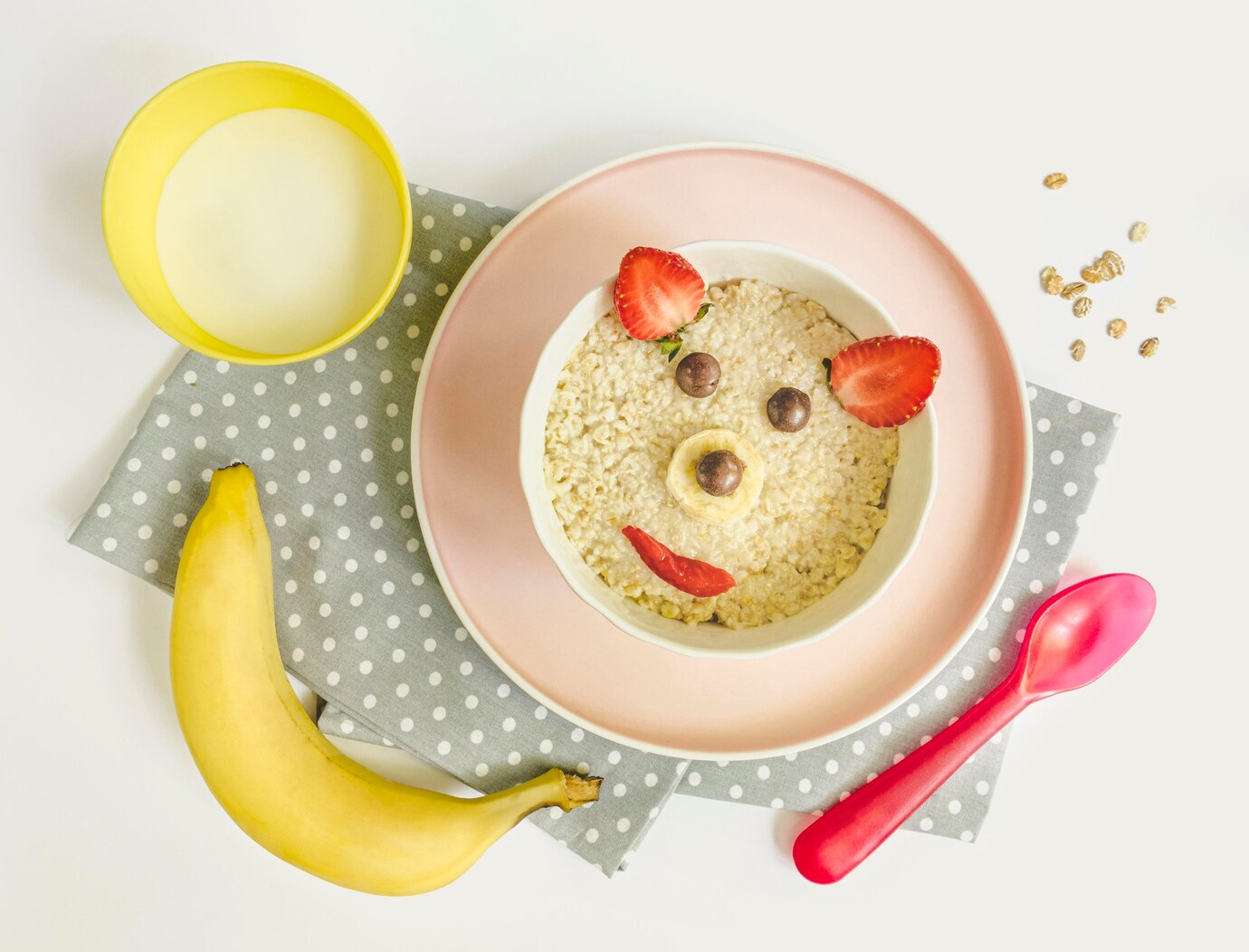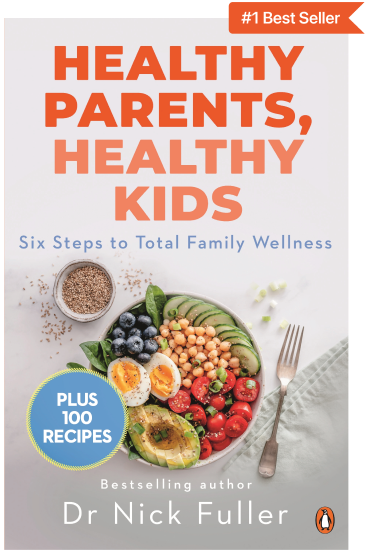How to Introduce Dairy to Picky Eaters

Dr Nick Fuller
Leading Obesity Expert at the University of Sydney and founder of Interval Weight Loss.

Getting your child to drink milk or eat cheese and yoghurt can feel like trying to crack a secret code. But here’s the thing: dairy is a nutritional powerhouse that supports strong bones, muscles, and teeth, critical for growing kids. Yet about 60% of Australian children don’t meet their daily calcium requirements, putting their development at risk.
Despite dairy’s importance, many kids reject it due to taste, texture, or simply unfamiliarity. The good news? With some clever, fun strategies, you can sneak dairy into their diet without the drama and help them build healthy habits that last a lifetime.
Ready to discover easy, effective ways to get your picky eater loving dairy? Keep reading for top tips and tricks that really work.
Struggling to Get Dairy Back on the Menu? Start Here
If your child avoids dairy or turns their nose up at anything creamy, you’re likely wondering how to bring it back without the usual resistance. In Healthy Parents, Healthy Kids, Dr Nick Fuller shares practical, stress-free strategies to reintroduce dairy at your child’s pace—no pressure, no mealtime drama.
Make dairy doable again. Grab your copy of Healthy Parents, Healthy Kids today.
The Real Reason Picky Eaters Need Dairy
Dairy isn’t just about milk moustaches and cheese toasties. It packs a serious nutritional punch. For kids who are fussy eaters, dairy can help fill crucial nutrient gaps that their limited diet might be missing. Here’s why it matters:
Source of Calcium
Calcium is an absolute legend when it comes to building strong bones and teeth. Unfortunately, many Aussie kids fall short of their daily calcium needs. Dairy is one of the simplest and tastiest ways to top up calcium, helping little bones grow tough and teeth stay healthy. In fact, a 2023 meta-analysis of clinical trials found that having dairy during childhood and adolescence can significantly boost bone mineral mass.
Supports Bone Growth
Childhood is prime time for packing on bone mass, with rapid growth spurts demanding plenty of calcium and phosphorus. Dairy foods deliver both these essential minerals in a handy combo that supports strong, growing skeletons. Getting enough dairy during these years sets kids up for healthier bones well into adulthood, reducing the risks of osteoporosis later on.
Provides Protein
Milk, cheese, and yoghurt aren’t just calcium champs. A study in Poland found that dairy products also provide a good share of the protein, vitamins, and essential amino acids kids need for healthy growth.
Protein is crucial for building muscles, repairing tissues, and keeping skin healthy, which is especially important for active kids. It also supports the immune system and helps little bodies fight off bugs and bounce back faster.
Contains Vitamin D
Vitamin D is the sidekick calcium needs to do its job properly, helping the body absorb it efficiently. While Aussie sunshine is a fantastic natural source, many dairy products are fortified with vitamin D to fill any gaps. This double whammy of calcium and vitamin D in dairy helps keep bones strong and growing as they should.
Helps With Muscle Development
Stronger muscles need both protein and calcium, and dairy delivers on both fronts. For kids learning to run, jump, and climb, these nutrients support muscle function and coordination.
Regular dairy intake can help little movers build the strength they need to explore and play with confidence. Studies have found that milk’s unique combo of high-quality protein, natural sugars like lactose, and essential minerals supports healthy growth, strong muscles, and steady energy, especially important during active play.
Supports Healthy Teeth
Dairy isn’t just good for bones. It’s a tooth’s best mate too. Calcium, phosphate, and casein (a milk protein) team up to strengthen tooth enamel and protect against decay. Research suggests that kids who consume dairy regularly may have healthier smiles and fewer cavities, thanks to the enamel-strengthening and antibacterial properties of milk and dairy products.
Boosts the Immune System
Dairy foods contain zinc and vitamin A, which are essential for a strong immune system. So, including dairy in your child’s diet can give their natural defences a helpful boost.
Why Do Picky Eaters Say No to Dairy?
Not all dairy rejections are the same. Here are some of the top reasons picky eaters might avoid it:
- Dislike of Taste or Smell: Milk can taste bland or 'funny' to sensitive palates. Cheese can smell strong. Yoghurt can be sour. Toddlers are brutally honest critics.
- Texture Issues: Some kids don’t like the smoothness of yoghurt or the 'squeaky' chew of cheese. Texture sensitivity is super common in children under 6.
- Past Stomach Discomfort: A bad experience, like bloating or vomiting, can lead to long-term aversion, even if it wasn’t caused by the dairy itself.
- Preference for Sweet Drinks: Juice and chocolate milk are more exciting to the taste buds than plain milk. That preference can stick hard without variety in the early years.
- Fear of Trying New Foods: 'Food neophobia' (aka fear of the unfamiliar) peaks between ages 2–6. Introducing new textures like soft cheese or creamy yoghurt might trigger a hard pass at first.
- Too Much Snacking Before Meals: Full tummies leave little room for dairy-rich foods. Grazing kids often reject dairy during main meals out of sheer fullness.
- Association With Negative Experiences: If your child was pressured to drink milk, had a tummy ache, or threw up after dairy in the past, they might associate it with discomfort, even subconsciously.
Want to cut through the confusion about which milk to buy? Dr Nick Fuller breaks down the best milk options for your family’s health, explaining what to look for and why. Watch now to make smarter, healthier choices at the supermarket.
Best Ways to Introduce Dairy to Picky Eaters
Ready to outsmart the dairy dodgers? These clever, low-pressure ideas make it easier to sneak dairy into your child’s diet without the drama.
Add to Smoothies or Shakes
Blend milk or yoghurt with naturally sweet fruits like banana, mango, or berries to mask the flavour and add natural sweetness, no need for added sugar. Smoothies are a great way to pack in calcium and protein in a delicious, drinkable form. If children consume dairy in varied forms, they are more likely to meet their calcium needs. So, mixing it up really helps.
Use Cheese in Fun Shapes or Dishes
Grab some cookie cutters and turn cheese slices into stars, animals, or other fun shapes to make snack time exciting. Melting cheese over pasta, toast, or scrambled eggs adds flavour and texture that many kids find irresistible. According to the Australian Dietary Guidelines, cheese is a nutrient-dense dairy source that can boost calcium and protein intake in a kid-friendly way.
Mix Yoghurt with Fruits or Cereal
Adding diced fruit or crunchy granola to yoghurt not only improves texture but also makes the snack more appealing and interactive. Letting kids 'build' their own yoghurt bowl encourages independence and curiosity around food.
Want to know which yoghurt is actually the best pick for your family? Check out Dr Nick Fuller’s easy guide to choosing yoghurt that’s low in sugar but high in nutrition.
Serve Milk with a Favourite Straw or Cup
Sometimes, it’s the little things that make a big difference. Serving milk in a fun cup or with a bendy straw can turn a boring drink into a treat. Giving kids the choice of their own 'milk cup' helps them feel in control and more likely to drink up.
Cook Meals Using Dairy (Soups, Sauces)
Sneak cheese into veggie-packed pasta sauces, stir milk into creamy mashed potatoes, or add yoghurt to dressings and dips. Cooking with dairy is a clever way to boost calcium and protein without your child even noticing. Incorporating dairy into meals may support nutrient intake while reducing mealtime battles.
Try Frozen Yoghurt as a Treat
Evidence points to sweetened drinks like fruit juices and sports drinks making up roughly one-quarter of the added sugars in kids' snack intake. Swap traditional ice cream for frozen yoghurt, which feels indulgent but often contains less sugar and more protein and calcium. Frozen yoghurt can be a fun, refreshing way to encourage dairy consumption, especially on warm Aussie days.
Start with Mild-Flavoured Dairy Products
Avoid strong, sharp cheeses like blue cheese or aged cheddar initially; instead, offer mild options like mozzarella, Colby, or plain Greek yoghurt to ease kids into new tastes. Mild dairy products are less likely to overwhelm sensitive palates and can build acceptance over time. The gradual introduction of new flavours is a proven strategy to reduce food neophobia in young children.
Struggling to get your picky eater to enjoy nutritious meals? These toddler-friendly potato recipes are perfect for sneaking in dairy like cheese and yoghurt while keeping flavours simple and kid-approved.
Let Kids Help Prepare Dairy-Rich Snacks
Get your little ones involved in making yoghurt parfaits, smoothie bowls, or cheese toasties. It’s a fun way to build excitement around food. Kids who participate in food prep are more likely to try and enjoy what they’ve made. Studies consistently show that hands-on involvement boosts children’s willingness to try new foods, including dairy.
Wrapping Up
Introducing dairy to picky eaters doesn’t have to feel like a war zone. With a bit of creativity, some patience and a few sneaky kitchen hacks, you can help your child warm up to dairy without the drama.
Remember, consistency is key, and exposure matters more than pressure. Keep offering, keep it light, and over time, you’ll likely see progress (and maybe even a few milk moustaches).
Stay informed with fresh tips, expert guidance, unique deals, and tailored support!
Meet Dr Nick Fuller
My Story
As a father, I know first-hand that raising healthy and happy children is tricky. Children are fussy, particularly at the end of the day when they are shattered. We also live in a society where companies seek to profit from what we feed our kids; incorrect and damaging advice is pushed on us and marketed towards our children, and we have no time.
But with these recipes and resources, you and your children can enjoy simple and well-founded food and lifestyle choices for lifelong health.

About Dr Nick Fuller
Dr Nick Fuller is the founder of Interval Weight Loss and is a leading obesity expert at the University of Sydney with a Ph.D. in Obesity Treatment. Dr Fuller is also the author of three best-selling books and his work been published in top ranked journals in the medical field, including JAMA, Lancet and American Journal of Clinical Nutrition.
